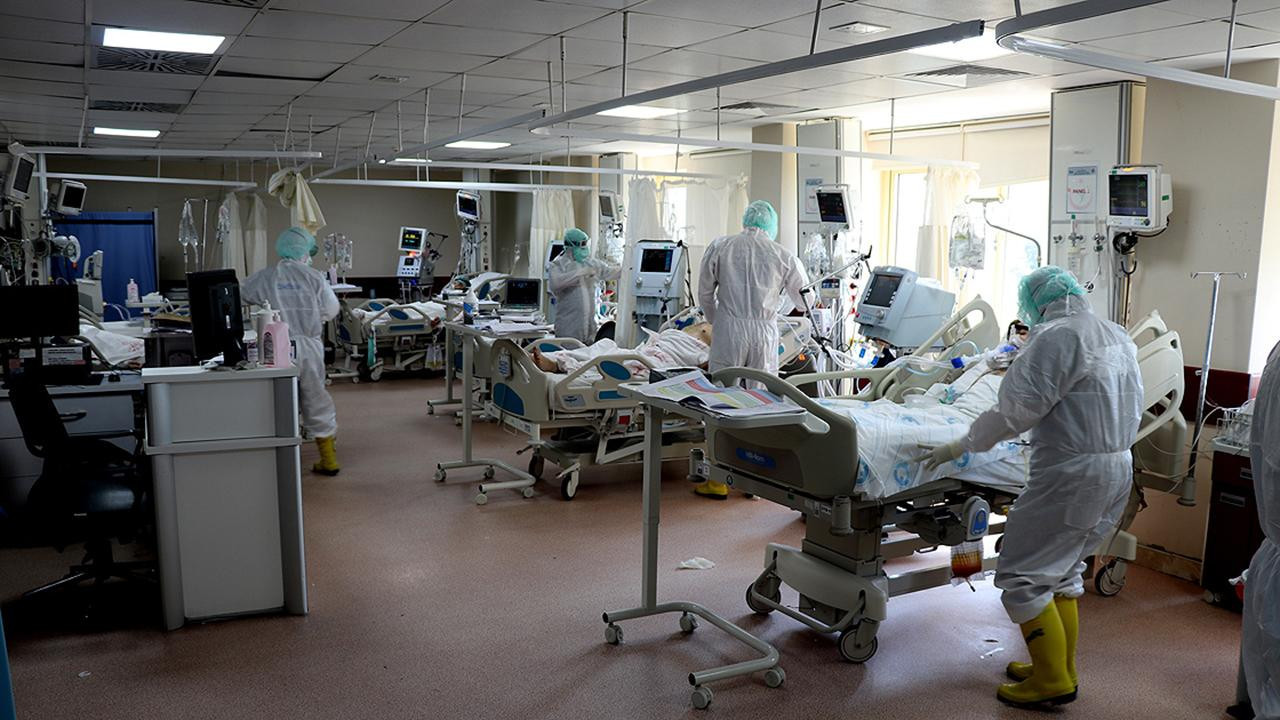Occupancy rate in intensive care units in Turkey nears 100 pct
The occupancy rate in intensive care units has approached 100 percent due to the recent increase in cases of upper respiratory tract infections in Turkey, according to the Turkish Intensive Care Association.
Duvar English
Tuğhan Utku, President of the Turkish Intensive Care Association, stated that the occupancy rates in intensive care units reached 100 percent in Turkey due to hike in severe upper respiratory tract infections compared to previous years.
Utku said that they received feedback from colleagues in the hospitals that planned surgeries had to be postponed or canceled because of the scarcity of beds, according to the reporting of HalkTv.
Prof. Utku said, "We are currently learning from the field that intensive care beds are full throughout Turkey, especially in Istanbul. The Health Ministry and Provincial Health Directorates have also taken action on this issue."
Last week, intensive care centers in Istanbul were visited one by one to determine the vacant bed numbers and the profile of the existing patients, according to the association’s head. "Intensive care demand always increases throughout the winter and the occupancy rate usually 65-70 percent. Currently, we estimate that this rate is around 100 percent,” he noted.
Utku underscored that the number of intensive care beds in Turkey was sufficient but these beds were not used efficiently and said, "Turkey is one of the luckiest countries in terms of intensive care.” The number of intensive care beds per 100,000 people is around 40, which is one of the best ratios in the world, according to Utku.
“One of the main reasons why there is such a problem despite such a serious number of intensive care beds is that there is a severe increase in our elderly patients and in the oncological patient group. When you put these two groups together, almost half of the capacity is already occupied."
Utku stated that only 20-30 per cent of those currently in intensive care units should actually be in these units and that palliative units, hospice, or intermediate intensive care units should be more common in Turkey.
“Where patients who will not survive on their own but do not need acute treatment can be cared for in these units and this burden on intensive care units can be relieved,” Utku added.
Istanbul Chamber of Medicine (İTO) Board Member Ayşen Yavru on Jan. 5 said at a press conference that due to seasonal infections and COVID-19, it has become extremely difficult or even impossible to find beds, especially in intensive care units, for patients who need to be hospitalized urgently.
Yavru stated that while private hospitals have approximately 50 percent of the intensive care beds, the public hospitals have the other half. She noted that the average age of those staying in intensive care centres was 80 and most of them were home care patients or end-stage cancer patients who stay in intensive care because there is no other alternative place.


 Turkish hospitals experience patient surge matching pandemic numbers, TTB saysHealth
Turkish hospitals experience patient surge matching pandemic numbers, TTB saysHealth Turkey has lowest doctor-to-population ratio in Europe, Eurostat data revealsHealth
Turkey has lowest doctor-to-population ratio in Europe, Eurostat data revealsHealth Turkish Medical Association survey finds 87 pct of health workers exposed to violenceHealth
Turkish Medical Association survey finds 87 pct of health workers exposed to violenceHealth